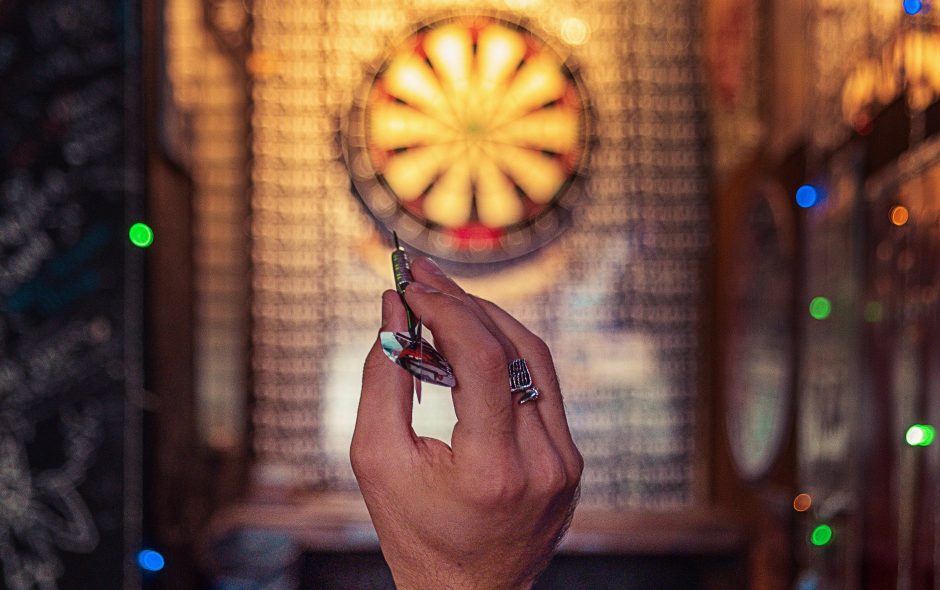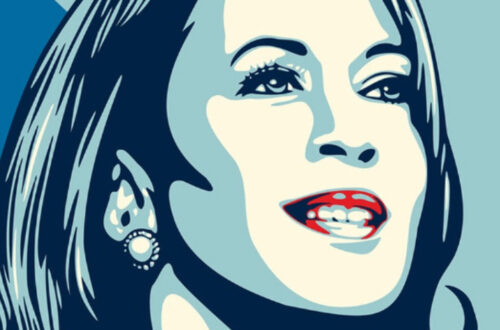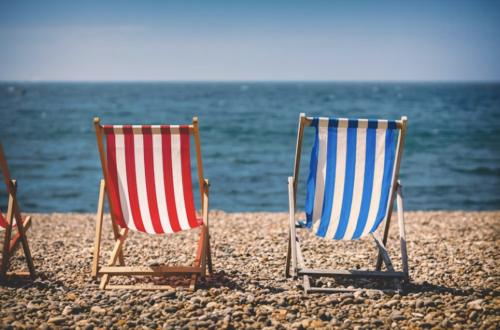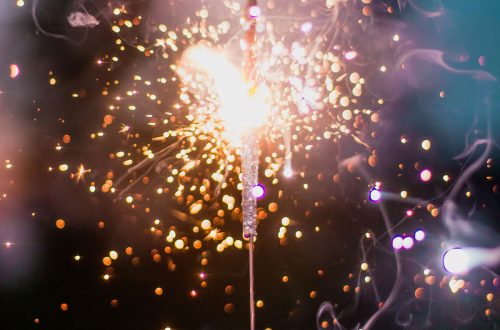I was raised in a Christian home, attended Sunday school, and was active in my church. An active faith is something I’ve always had (except for those first couple years of college). Since my mid-twenties, I have considered myself an evangelical Christian. Evangelical defined as one who spreads the good news of Christ’s teachings—salvation, redemption, love one another, among others. That was until 2007 when conservative Christians began their power-grab with refashioning the Jesus of the Bible—the itinerant Jewish rabbi who railed against the powerful, the self-important, and the Haves, and taught the importance of caring for the marginalized, the oppressed, and the disenfranchised—into a political savior of their own making.
I can kinda almost understand conservative White people’s jitteriness about America becoming a minority-majority country. What with all the colonization, enslavement, misogyny, and discrimination their forefathers have wrought from sea to shining sea over the past 243 years, that’s ample cause for anyone’s descendants to fear retribution.
But as fate would have it, the vast majority of people who are victims of white supremacy—Black, Indigenous, and People of Color—don’t practice vengeance and self-aggrandizement at the expense of others with the ease of telling a lie. That’s not what we do. No one’s coming to lay waste to white enclaves or round white people up in camps. All we hope to do is make the country our ancestors died building more equitable and exercise the rights and freedoms the Constitution guarantees in stating that all people are created equal.
You’d be surprised just how many white people are actually into a more egalitarian society and a form of democracy that is reflective of this country’s diverse cultural make-up. Typically, I’ve found that these are descendants of those who remember the hardships and ostracism of being an immigrant in this country. Those White people understand that this country’s strength lies in its uniformity, but its diversity.
For the uninformed, I’m a Black man who is forty-eight inches tall, gay, and Christian. I am unable to change the first three aspects of my being, and the fourth I am unwilling to divest myself of. I am not looking for pity or an honorary unicorn pin; nor do I have an ax to grind. I mention these factors because there is no denying these attributes play a huge part in shaping how the world responds to me and how I, in turn, move through the world; much the same way gender, ethnicity, physicality, sexual orientation, religious affiliation (or the lack thereof), and other factors shape the way anyone deals with their surroundings.
My ethnicity, height, sexual orientation, and religious affiliation are neither good nor bad in and of themselves. They only take on positive or negative connotations in people’s minds based on the way they think about those factors and project their perceptions on me. For example, if there are aspects of my being that positively connect with you, you might regard me as approachable or friendly. On the other hand, qualities about me that set your teeth on edge might cause you to view me as someone to avoid. The point is people form judgments about me (and people like me) all the time and have every day of my life, but the equitable part in all of this is that I get to make judgment calls about everyone else, too. But the way I keep my opinions in check and not get it twisted is to have an active awareness of not only what shapes my opinion (facts over fears), and how it shapes my opinions.
Whiteness has been the normative standard for just about everything in America and has mandated that any deviation from that norm be regarded as an aberration, foreign, less than, and/or unacceptable. In this country, those standards are so baked into our culture that derogatory epithets exist as a type of shorthand to express disdain for people and things viewed as outside the acceptable bounds of “normalcy.” Don’t believe me? I’m sure you can easily think of at least one demeaning term for Black people or gay people or short-statured people or people living with disabilities.
And this disdain extends well beyond labels. Throughout our history, there have been practices that were so ingrained in society that they have become well-established practices or customs. The practices of slavery, Jim Crow, terror lynchings, the need for the Civil Rights movement, unfair business practices like redlining, underfunding of Black schools and neighbors, mass incarceration, and many more are prime examples of how the diminishment of Black People, People of Color, and marginalized groups supports the idea that the only people who matter are straight, white, conservative Christian males, and the women who love them. Everyone else can fend for the crumbs that fall to the floor. This, my friends, is institutionalized racism.
A couple of months ago I had an online chat with a guy I’ve known for decades. We’re both men of faith, Christians. Despite being members of different denominations we share a lot of Christianity’s core beliefs about God, being born again, sharing the good news of the Gospel, the importance of scripture, Christ’s work on the cross, his teachings to love one another, blah, blah, blah. We agree on all that stuff, except maybe my Jesus has darker skin and curlier hair than his.
Then like fools, we rushed in where angels fear to tread: politics.
He typed that he just wouldn’t feel safe in America with anyone other than the current president in the office, I erupted in an unbridled mix of laughter, rage, and disbelief.
“Oh? As a white guy in America, you feel ‘unsafe’? Do you want to know what it’s like to feel unsafe in America? Try being a Black man or gay or a person with disabilities in America,” I banged out on my laptop.
This blue-eyed, fair-haired, conservative Christian guy can walk into any store without the assumption that he’s going to shoplift. This guy like so many others can walk into any restaurant and expect to be seated without undue delay at a “good” table. This guy doesn’t have to worry that he or his kids might not make it home that night because a police officer has never really liked people with his color skin. This guy doesn’t have to bear the full weight of being the object of this nation’s legacy of abject hatred of him and his culture . . . until it goes mainstream and then it’s all the rage. (See R&B, hiphop, and rap music.)
Personal story.
Oh? As a white guy in America, you feel ‘unsafe’? Do you want to know what it’s like to feel unsafe in America? Try being a Black man or gay or a person with disabilities in America. Better yet, try living as all three.
In my church, ten years ago the environment was such that, despite my shyness, I was made to feel welcome and a valued member of the parish. Instead of the main service, I would make my foray into church life via the smaller and more intimate evening service, the entry’s point to the church for many over the years. Same sermons, et cetera, but simpler and more intimate environment. Gradually, I began to feel more at home and started attending the main service. My talents and gifts were welcomed and put to use.
Now more than ten years later, the vibe in that same evening service feels like an exclusive club of which I am not a member, and that warm and welcoming feeling is reserved only for a select few. And before you ask—yes, I’m sure. I’ve been living too long to misread the signs. When one of the priests goes out of his way to not extend a greeting during the Peace or when other parishioners consistently cast a vacant stare in your general direction, you can be sure. This saddest part of all is that this takes place in God’s house. A house for all people, where are all welcome. I get the impression though that at this particular service the goods are reserved for only all of one type of people. Now if this is an anti-Black, anti-short-statured, or anti-LGBT person thing, I can not be sure. But ultimately it should not be a thing. Ever. Least of all there.
Within the last six years, there’s been a definite shift in attitudes in America. There was a time when white supremacists (read neo-Nazis) parading through this nation’s towns yelling racial slurs was unacceptable, if not unthinkable. But over the last few years, occurrences of men walking into night clubs gunning people down like fish in a barrel, or joining a Bible study and slaughtering attendees to start a race war, or a child’s killing by police officers for having a toy gun, or any number of hundreds of instances in which Black People and People of Color are killed for simply existing have become commonplace.
New York has always been an awe-inspiring place to me. My older sister lived there for a few years when I was growing up, as does my very best friend who turns one hundred years old this April. Thanks to these two people, I’ve long viewed anyone from the state New York state in a favorable light. They’ve consistently received a pass until they proved otherwise. In the mid-eighties, I took my first trip to New York on a business trip and fell in love with it. Granted, all I got to see was one of the airports, a mall in Paramus, New Jersey, and a view of the Manhattan skyline from a distance, but it was still a thrill. A few years later, a good friend moved to New York City. His couch afforded me a place to crash as needed.
In April 1989, five Black and Latino teenage boys were wrongfully convicted and sent to prison for the brutal rape and beating of a jogger in Central Park. The case made national attention and a New York real estate mogul was so outraged that he went so far as to place a full-page ad in The New York Times calling for the teens’ execution, even though the state ended the practice in 1984. The real estate mogul: Donald Trump. Even now, years after the Central Park Five’s exoneration of the crime, Trump has continued to double-down about his racist screed.
Fast-forward to 2008. The election of Barack Obama triggered a backlash by White racists and other malcontents against Black Civil Rights advances, the effects of which the country is still dealing with today. Consider how on the night before President Obama’s inauguration, a cadre Republican legislators met in secret and devised a plan to obstruct the Obama administration advances at every turn and make him a one-term president. I needn’t go into detail about the way the current president single-handedly started the birther movement which, fed on white outrage over Obama’s presidency, propagated conspiracy theories that the forty-fourth president was not a natural-born U.S. citizen and therefore ineligible to be president of the United States. It was all an effort to discredit Obama and present him as fraudulent and his presidency as illegitimate. That a Black man dared ascend to the most powerful office in the land, not once but twice—was too much for some to bear. Pity.
I don’t know what’s in the president’s heart nor do I claim to, but one has to question his ability to see beyond his fingertips and have empathy, let alone concern, for anyone other than Donald John Trump.
Look at his track record:
- his doubling down on his original position to the Central Park Five, despite their exoneration (thanks to DNA evidence and a confession by the rapist)
- his attempt to cast President Obama and his presidency as illegitimate
- his response to the Charlottesville clash between Neo-Nazis and Antifa
- his response to Hurricane Maria’s impact on Puerto Rico
- his Muslim ban
- and his recent order to have a high-ranking Iranian military leader assassinated
There’s one thing you can’t deny: the president’s actions and general tenor toward Black and Brown people, and anyone else who is not a straight, able-bodied, cisgender, white male have a decidedly malevolent bent—if not outright racist—unless it serves his immediate and singular need.
As someone who falls within three (possibly four, he’s no fan of college graduates) groups that are regularly denigrated by the president’s words and policies, it’s not in my best interest to assume he’s looking out for my best interests when his actions demonstrate that’s simply not the case. He’s done nothing since he’s been in office that has been to the benefit of people who look like me. (See this extensive list of Trump’s patently racist comments.) And I consider myself an expert on racism as it relates to the Black experience, especially as it relates to the short-statured, gay, Black, Christian male experience. Why? Because I’ve lived it every day of my life.
From my point of view, the president’s actions mirror those of a racist. And if you are of the mind that America no longer has racial issues since the country has had a Black president for two terms, answer this question: given the way Black People and People of Color are treated in this country, would you want to be a Black person or Person of Color? And if that kind of treatment isn’t acceptable for you, why should it be acceptable for anyone else?
So surely you can understand how my aversion to anyone who not only sees Black, short-statured, and/or LGBTQ people as “less than” or “other” and would work to our demise isn’t merely justified, it’s a matter of self-preservation.
Love one another.




